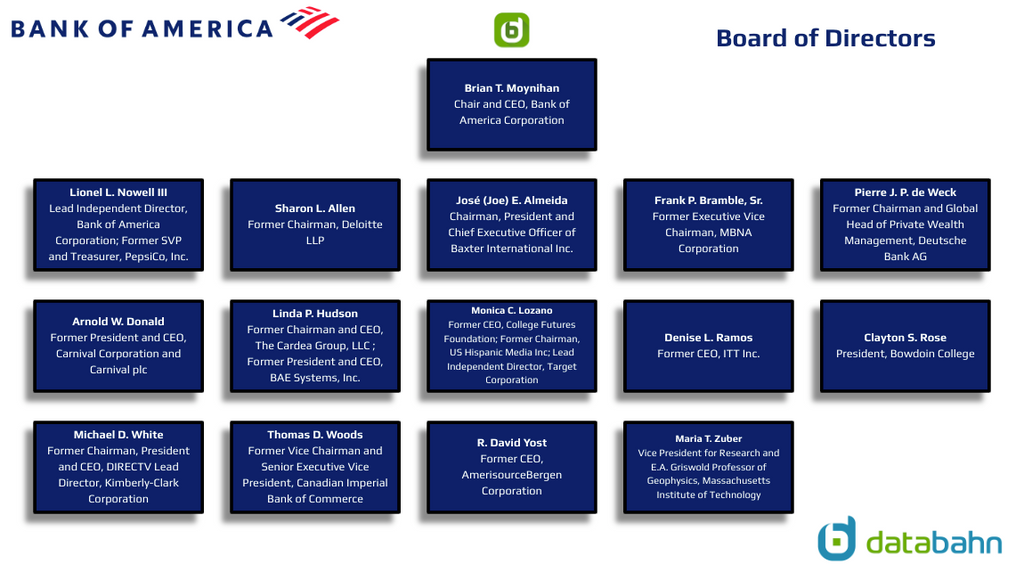Bank of America private bank wealth management analyst income takes centre stage as we delve into the intriguing world of wealth management within one of the largest financial institutions. The Private Bank offers a suite of bespoke services tailored to affluent clients, aiming to preserve and grow their wealth through personalised investment strategies and financial planning. With a reputation for excellence in the market, the bank caters to a diverse clientele, including high-net-worth individuals and families seeking comprehensive financial solutions.
At the heart of this operation are wealth management analysts, who play a pivotal role in understanding client needs and delivering top-notch financial advice. The responsibilities of these analysts are multifaceted, combining analytical skills with an understanding of complex financial products to craft strategic investment portfolios. As we explore the intricacies of this role, we shall uncover the essential qualifications and daily challenges faced by these professionals.
Overview of Bank of America Private Bank

Bank of America Private Bank stands as a pillar in the realm of wealth management, offering a comprehensive suite of services designed to cater to the financial aspirations of high-net-worth individuals and families. This institution combines its extensive expertise in investment management with an array of financial solutions to meet the diverse needs of its clientele.
The services provided by Bank of America Private Bank encompass a wide variety of offerings aimed at fostering wealth growth and preservation. These include personalised investment strategies, estate planning, philanthropy guidance, and credit solutions. A distinctive feature of their approach is the integration of investment management with banking services, which ensures that clients receive holistic advice tailored to their unique circumstances. Wealth structuring and tax optimisation are also pivotal elements of their service portfolio, allowing clients to navigate complex financial landscapes effectively.
Target Clientele of Bank of America Private Bank
The target clientele for Bank of America Private Bank primarily consists of high-net-worth individuals, affluent families, and business owners seeking sophisticated financial services. This demographic typically includes professionals, entrepreneurs, and executives who possess significant investable assets and require tailored strategies to manage their wealth.
The bank prides itself on fostering relationships with clients who demand a high level of personalised service. Clients often have complex financial needs, necessitating a dedicated team of experts who can offer bespoke solutions. The emphasis on trust and long-term partnerships is evident, as the bank aims to understand the personal and financial goals of each client deeply.
Market Position and Reputation of Bank of America Private Bank
Bank of America Private Bank enjoys a formidable market position, marked by its extensive resources, global reach, and robust investment capabilities. The institution is recognised for its commitment to integrity, innovation, and client-centric service, which significantly enhances its reputation in the wealth management sector.
The bank’s stature is reflected in its significant assets under management, which are indicative of the trust clients place in its expertise. The institution has also garnered various accolades within the financial industry, affirming its standing as a leader in private banking.
“Bank of America Private Bank combines the advantages of a global institution with a personalised approach, ensuring clients receive unparalleled financial services.”
With a focus on delivering value through strategic investment insights and comprehensive wealth management, Bank of America Private Bank continues to be a preferred partner for those looking to secure and enhance their financial legacy.
Role of a Wealth Management Analyst

Wealth management analysts at Bank of America play a pivotal role in the intricate world of financial advisory services. These professionals are integral to the seamless functioning of wealth management operations, focusing on delivering tailored financial solutions to clients with substantial assets. Their insights and analyses help to shape investment strategies and client engagement, thereby enhancing overall client satisfaction and retention.
The primary responsibilities of a wealth management analyst encompass a broad spectrum of tasks essential for effective portfolio management and client service. These responsibilities include conducting in-depth financial analyses, monitoring market trends, and assisting in the development of investment strategies tailored to individual client needs. Analysts also collaborate closely with financial advisors to prepare reports and presentations that convey complex financial information in an understandable manner. This role requires a keen understanding of financial instruments, investment strategies, and market dynamics.
Necessary Skills and Qualifications
To thrive in the role of a wealth management analyst, candidates must possess a combination of analytical, technical, and interpersonal skills. A bachelor’s degree in finance, economics, or a related field is typically required, with many candidates opting for further qualifications such as the Chartered Financial Analyst (CFA) designation.
The following skills are crucial for success in this position:
- Analytical Skills: The ability to interpret complex financial data and make informed decisions based on quantitative analysis.
- Attention to Detail: Precision in dealing with financial records and reports is vital to avoid costly errors.
- Communication Skills: Strong verbal and written communication abilities are essential for articulating financial concepts to clients and team members.
- Technical Proficiency: Familiarity with financial modelling software, data analytics tools, and Microsoft Excel is highly beneficial.
- Client Relationship Management: The capacity to build and maintain trustful relationships with clients is imperative for long-term success.
Typical Day-to-Day Activities and Challenges
The daily activities of a wealth management analyst are diverse and dynamic, often requiring adaptability to meet the varying needs of clients and market conditions. Analysts typically begin their day by reviewing market updates and assessing investment performances, which sets the stage for their client interactions throughout the day.
The following activities represent common tasks undertaken by wealth management analysts:
- Conducting market research to identify investment opportunities and risks.
- Preparing detailed reports and presentations for client meetings.
- Collaborating with financial advisors to develop comprehensive financial plans.
- Monitoring and analysing client portfolios to ensure alignment with investment goals.
- Engaging with clients to address inquiries and provide updates on portfolio performance.
Despite the rewarding nature of this role, wealth management analysts face specific challenges, such as:
The need to balance multiple client demands while adhering to strict compliance and regulatory standards.
The ability to remain calm under pressure and adeptly manage competing priorities is essential. Analysts must also stay abreast of constantly evolving market conditions and regulatory changes that could impact their clients’ investments, ensuring they provide timely and relevant advice.
Income Potential for Wealth Management Analysts: Bank Of America Private Bank Wealth Management Analyst Income

The income potential for wealth management analysts at Bank of America can be quite lucrative, particularly for those who excel in their roles. As the demand for skilled analysts continues to rise in the financial services sector, understanding the salary range and factors influencing income is essential for aspiring professionals.
The salary range for wealth management analysts at Bank of America typically spans from £50,000 to £80,000 annually, depending on various factors. Newly graduated analysts generally start at the lower end of this spectrum, while those with significant experience or specialised skills can command salaries towards the upper end. In addition to base salary, analysts often have the opportunity to earn bonuses based on performance, which can significantly enhance their overall compensation packages.
Comparison with Similar Positions in the Financial Services Industry, Bank of america private bank wealth management analyst income
When comparing the income potential of wealth management analysts to similar positions within the financial services industry, it is imperative to consider how roles like financial analysts, investment analysts, and private equity analysts stack up. Generally, wealth management analysts tend to earn competitive salaries, but the income can vary depending on the specific financial field.
For instance, financial analysts typically earn between £45,000 and £75,000, while investment analysts may see earnings ranging from £55,000 to £90,000. This comparison delineates the competitive nature of salaries across different roles, often influenced by the complexity of the responsibilities inherent in each position.
Factors Influencing Income
Several key factors significantly influence the income potential of wealth management analysts. Understanding these components can provide valuable insights for those considering a career in this field.
- Experience Level: Analysts with more years in the field often earn higher salaries due to their accumulated expertise and ability to manage complex client portfolios.
- Education: Possessing advanced degrees or professional credentials, such as a Chartered Financial Analyst (CFA) designation, can lead to higher earning potential as firms often seek candidates with specialised knowledge.
- Geographic Location: Salaries can vary significantly based on the cost of living in different regions. Analysts in major financial hubs like London or New York typically earn more than those in smaller markets.
Experience, education, and location are pivotal in determining the earning capacity of wealth management analysts.
Career Growth and Opportunities
The landscape for wealth management analysts at Bank of America is both promising and dynamic, presenting a plethora of career advancement opportunities. As individuals gain experience and develop their skill sets, they are well-positioned to ascend the corporate ladder, stepping into more senior and specialized roles within the organisation. The potential for professional growth in this field is significant, especially within a reputable institution such as Bank of America, which emphasises employee development and mobility.
Career paths for wealth management analysts can vary widely, often leading to roles such as Senior Analyst, Portfolio Manager, or Wealth Advisor. Analysts may also transition into related areas such as risk management, investment strategy, or financial planning. This versatility allows professionals to tailor their careers based on personal interests and industry demands.
Professional Development Programs and Certifications
Engaging in professional development is crucial for wealth management analysts seeking to enhance their expertise and marketability. Bank of America offers several in-house training programmes designed to equip analysts with essential skills and knowledge. Participation in these programmes can provide analysts with a competitive edge in their career progression.
Certifications can further bolster an analyst’s credentials. Relevant certifications include:
- Chartered Financial Analyst (CFA): This prestigious designation is highly regarded in the finance industry and covers extensive knowledge in investment management and financial analysis.
- Certified Financial Planner (CFP): This certification is beneficial for those looking to specialise in financial planning and client relationship management.
- Financial Risk Manager (FRM): This certification focuses on risk assessment and management, which is essential for those considering a shift towards risk management roles.
- Chartered Alternative Investment Analyst (CAIA): This certification is valuable for analysts interested in alternative investments, enhancing their understanding of hedge funds and private equity.
Networking Opportunities and Industry Events
Networking is an integral part of career development in finance, particularly for wealth management analysts aiming to forge connections and explore new opportunities. Participation in industry conferences and networking events can lead to invaluable contacts and insights.
Several notable events include:
- Morningstar Investment Conference: This annual conference brings together investment professionals to discuss trends and insights in the investment landscape.
- Financial Planning Association (FPA) Conference: A key event for financial planners, offering sessions on best practices and networking opportunities.
- CAIA Association Events: These events focus on alternative investments and provide a platform for networking with industry leaders.
- Local Chapter Meetings: Many professional associations host local events, which can be an excellent way to meet peers and industry veterans in a more intimate setting.
Building relationships through these networking avenues can significantly enhance career prospects, providing analysts with mentorship opportunities and insights into emerging trends in the wealth management sector.
When considering the complexities of wealth management, one often turns to a private bank for tailored financial solutions. These institutions provide bespoke services, focusing on individual client needs. Particularly, the wf private bank exemplifies this approach, offering a range of investment strategies designed to enhance and protect wealth over time.
For those navigating the intricate world of finance, opting for a private bank can be a pivotal decision. Such banks cater specifically to high-net-worth individuals, ensuring personalised service and expert advice. An excellent choice within this sector is the wf private bank , recognised for its comprehensive suite of financial products and dedicated client support.